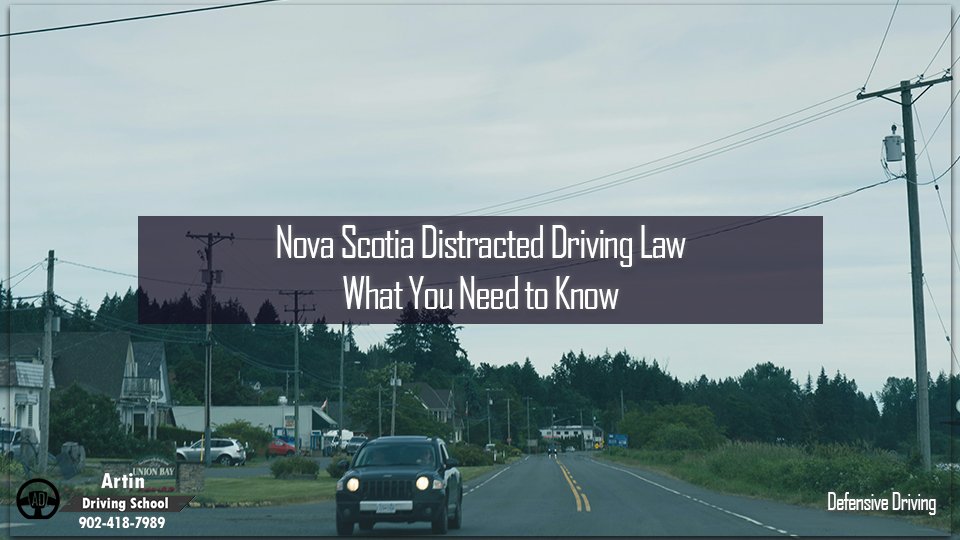On a beautiful summer Friday like today, the roads start to get busy with people heading out for the weekend.
Amidst the traffic, it’s more important than ever to be a focused driver. Understanding the specifics of the Nova Scotia distracted driving law is not just about avoiding hefty fines; it’s a critical part of keeping our roads safe for everyone, from pedestrians on Spring Garden Road to cars on the 102 highway.
Many drivers think they know the rules, but there are common misconceptions that can lead to a ticket or, far worse, a collision. This guide breaks down exactly what the law says, what the penalties are, and what it means for you as a defensive driver.
What Is Legally Considered Distracted Driving?
The law in Nova Scotia, specifically Section 100D of the Motor Vehicle Act, is about more than just texting. It prohibits the use of hand-held cell phones and other electronic devices while driving.
Under the law, it is illegal to:
- Use, hold, or operate a hand-held cell phone.
- Text, email, or use any other text-messaging feature.
- Use hand-held electronic devices like tablets, gaming systems, or laptops.
- Manually program or input information into a GPS device while the vehicle is in motion.
Essentially, if it’s in your hand and has a screen, you cannot use it while driving. The law aims to ensure both your hands and your cognitive focus remain on the task of driving.
The Penalties: What Happens if You’re Caught?
The consequences for violating the Nova Scotia distracted driving law are severe and they increase with each offense. The goal of these steep penalties is to strongly discourage this dangerous behaviour.
- First Offense: A fine of $237.50 and 4 demerit points on your license.
- Second Offense: A fine of $342.50 and 4 demerit points.
- Third (and subsequent) Offense: A fine of $572.50 and 4 demerit points.
It’s important to remember that accumulating demerit points can lead to a license suspension and will almost certainly increase your insurance premiums. The financial cost goes far beyond the initial ticket.
The Nova Scotia Distracted Driving Law: Your Questions Answered
No. The law applies anytime you are on a public roadway, even when stopped temporarily at an intersection or in a traffic jam. To legally use your hand-held device, you must be safely and legally parked, off the travelled portion of the road.
Yes. You are permitted to use a cell phone in hands-free mode (e.g., via Bluetooth in your vehicle’s sound system). The device must not be held, and you can only touch it once to activate or end a call. This is a critical distinction in the law.
You can use a GPS or a phone’s map function, but only if the device is securely mounted to the vehicle (e.g., in a cradle on the dashboard or windshield) and not obstructing your view. You are not allowed to hold it or program coordinates while driving. You must pull over and park to enter a destination.
Yes. The law allows for the use of a hand-held device to contact 911, police, fire, or medical services in an emergency situation.
Beyond the Law: The True Cost of Distraction
While knowing the rules and penalties is important, a defensive driver understands that the law is a minimum standard. The real reason to avoid distraction isn’t the fine; it’s your safety and the safety of others. Even a “legal” hands-free call can create cognitive distraction, dividing your brain’s attention and slowing your reaction time. You can learn more about the official rules directly from the Government of Nova Scotia’s official page.
True road safety comes from a commitment to focusing 100% on the complex task of driving. No text, call, or notification is worth the risk.
Understanding the law is step one. Mastering the mental focus to be a truly safe driver is the next. Take a certified course at Artin Driving School to elevate your skills.





